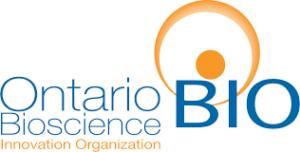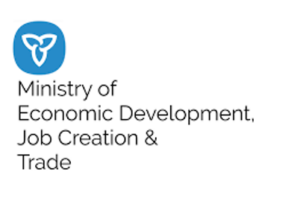TIAP FEATURES:
Critical Technologies From Sunnybrook Research Institute Powering Advances In Therapeutic Ultrasound Catheters
TIAP’s Critical Technologies Program continues to gather steam with the latest initiative to receive support being a project from Sunnybrook Research Institute (SRI) led by Principal Investigator, Dr. David Goertz and Research Engineer, Alex Wright.
Initially supported via the University of Toronto Early-Stage Technology (UTEST) program co-delivered by TIAP, this project focuses on developing a catheter-based device that uses therapeutic ultrasound to treat vascular occlusions, with their initial treatment target being stroke, but with potential applications to vascular occlusions in periphery, pulmonary, and/or coronary contexts. Now with new support received from TIAP’s Critical Technologies Program — a partnership with OBIO® with funding from the Ontario Ministry of Economic Development, Job Creation and Trade — the project will further augment their treatment methodology with AI, using it to process and analyze the electrical signals that are transmitted and received from the transducer in order to optimize treatments.
The occlusion of large blood vessels with thrombus is a major cause of mortality and morbidity worldwide and it can occur in the context of ischemic stroke, myocardial infarction, pulmonary embolism (PE) as well as in peripheral vessels (e.g. DVT). Acute thrombotic occlusions are increasingly treated with catheter-based mechanical thrombectomy approaches, one of the most prominent of which is to aspirate clots through a hollow catheter lumen using suction. While this technique has had a major impact on patient care, in many cases aspiration attempts are either not successful or require multiple passes to achieve, which can be associated with less favourable treatment outcomes. A number of factors can contribute to an extraction not being successful, a primary one being that stiffer or larger volume clots can ‘cork’ in the catheter tip, which prevents complete extraction. As such there is a high level of interest in improving aspiration thrombectomy technology to facilitate the ingestion of clots into the aspiration catheter.
This innovative technology employs a novel hollow cylindrical transducer situated at an aspiration catheter tip, and this transducer creates internal violent ‘cavitation clouds’ to mechanically degrade thrombus as it enters the catheter, thereby facilitating its ingestion. This approach has the potential to be scaled to a range of catheter sizes to create a family of products that can be used to improve the treatment of a wide spectrum of thrombotic conditions including stroke, DVT, PE and myocardial infarctions. An important aspect of the design is that the electrical signals which are transmitted to and received from the transducer can also be used to gain insight into the current state of treatment as well as the intravascular environment, such as whether cavitation is occurring or if a clot has entered the lumen of the transducer.
The integration of AI is being explored to process and classify these signals with the objective of optimizing treatment — with the overall objective being the development of AI-driven self-sensing capabilities that can be used to monitor and ultimately control their ultrasound-enhanced aspiration catheters with a view to achieving optimized thrombectomy treatments.
…and with an estimated 100,000 mechanical thrombectomy procedures per year to be carried out in the US alone for ischemic stroke by 2028 (with a 24% CAGR), the potential impact of this made-in-Ontario innovation is immense.
About the Critical Technologies Program
As part of Ontario’s provincial Critical Technologies Initiative, TIAP is pleased to be partnering with OBIO® to offer support to accelerate the health science industry’s use of 5G and advanced networks, blockchain, cybersecurity, ethical artificial intelligence (AI), quantum computing, and/or robotics; and is delivering the ‘De-Risking of Emerging Technologies and Venture Creation’ funding stream of OBIO’s ‘Life Sciences Critical Technologies & Commercialization (LSCTC) Centre of Excellence’ which is supported by the Government of Ontario.
If you are an innovator or entrepreneur with emerging life sciences technologies and/or an early-stage venture utilizing critical technologies and need support with IP management, company creation, and/or technology de-risking, CLICK HERE for more information on how TIAP may be able to help — or contact: Mobeen Lalani, Senior Analyst, Technology and Venture Development at mlalani@tiap.ca
With thanks to:


